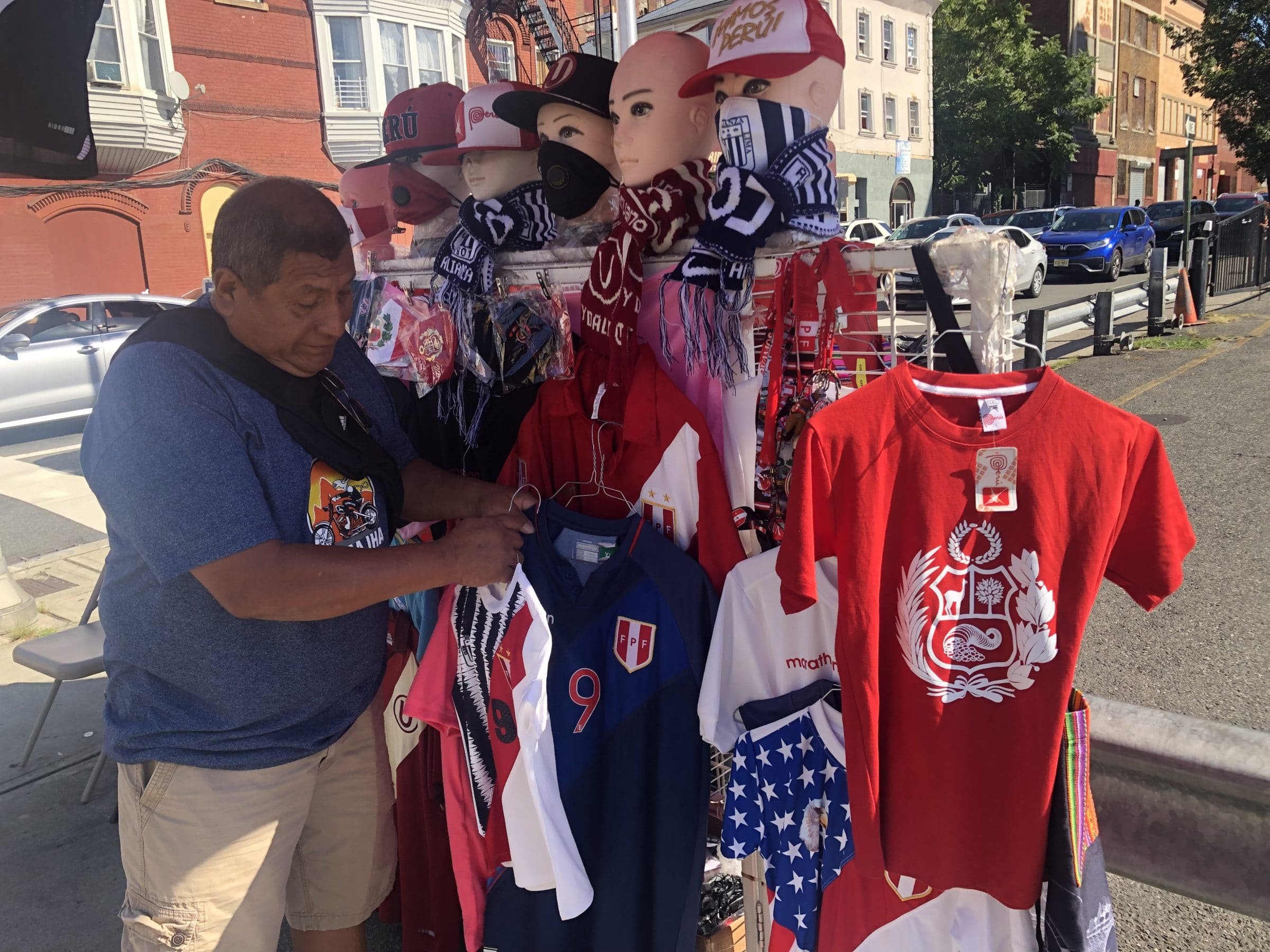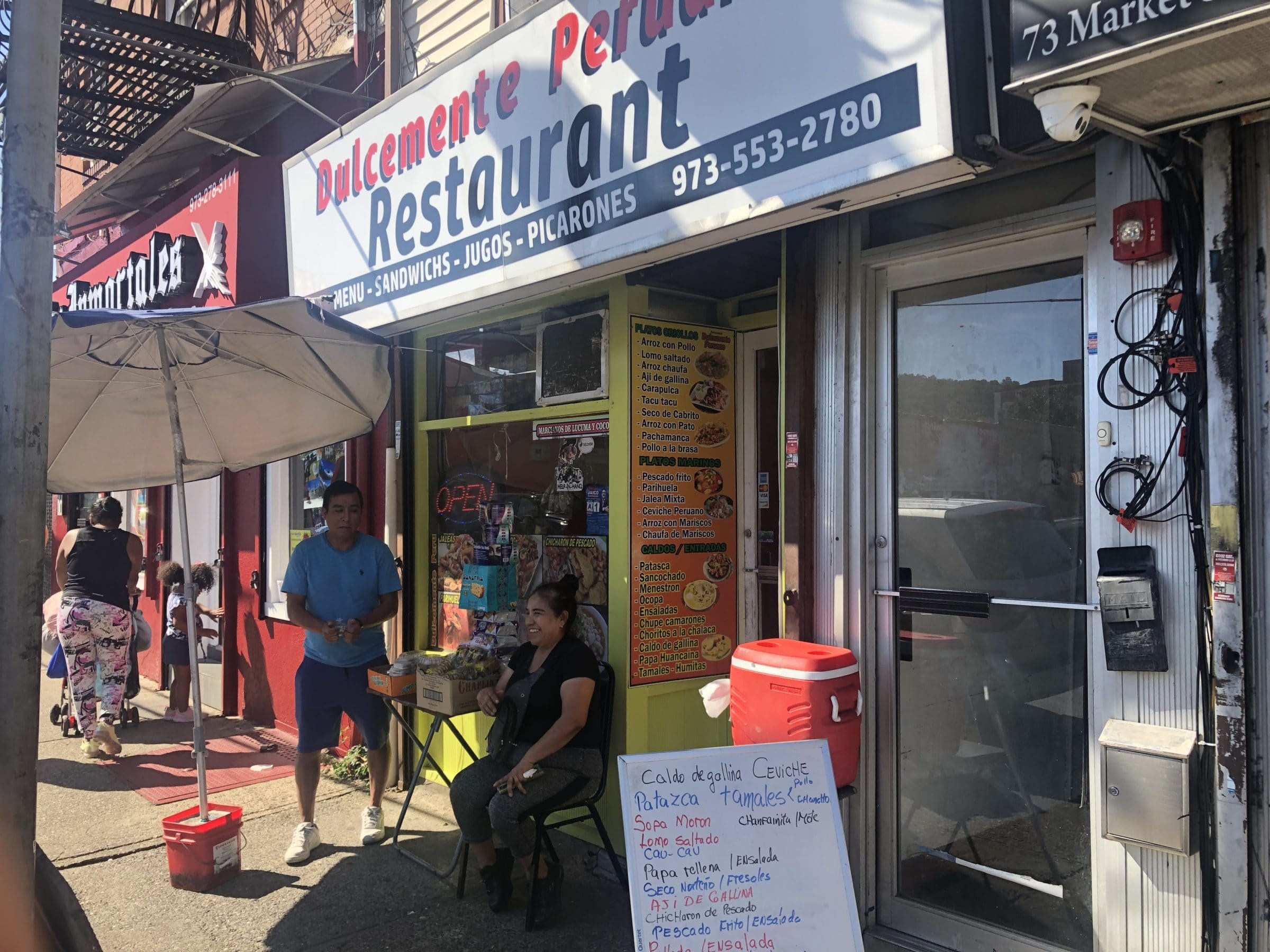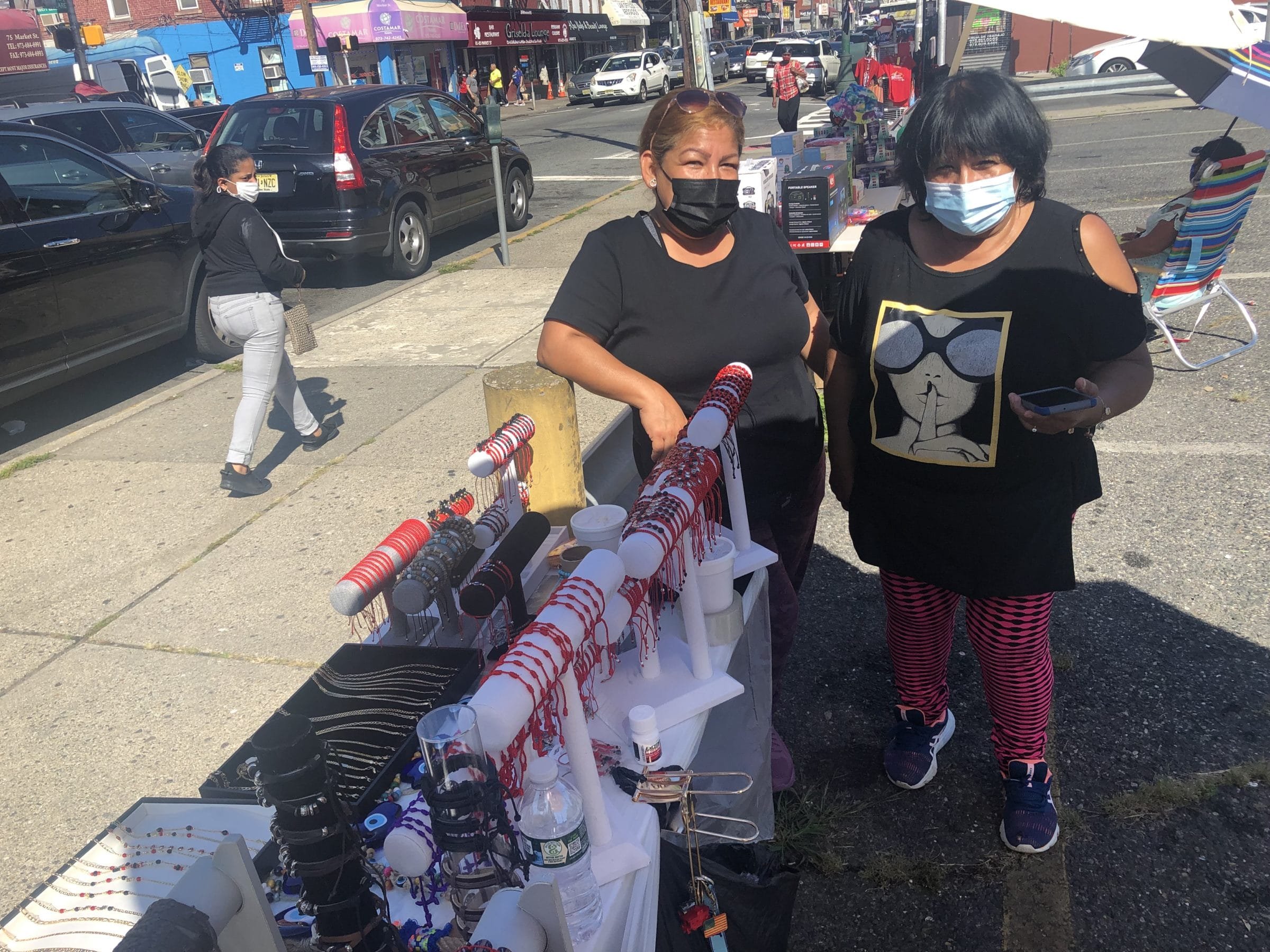COVID-19 thrusts NJ Latino undocumented immigrants into uncertainty
By Maricarmen Amado, New Jersey Hispano
This story was produced as part of a six-month COVID-19 reporting fellowship with NJ ethnic and community media organized by the Center for Cooperative Media at Montclair State University. It has been updated and edited from its original version.
PATERSON — They work day in, day out. Some of them sell food, shirts or jewelry on the streets. Others work in restaurants and retail stores. Without immigration documents, most of them work in low-paying jobs and bear the brunt of the coronavirus pandemic.
“We have to sell trinkets on the sidewalk in order to make ends meet,” said July Soria, who was with her friend, Antonieta Loayza, at the parking lot of St. Joseph Church in Paterson, NJ. “Since we are not eligible to receive stimulus checks and unemployment benefits from the federal government, we set up this table everyday to survive.”
According to Muzaffar Chishti, senior member and director of the Migration Policy Institute (MPI) office at NYU Law School, undocumented immigrants are disproportionately affected by the pandemic. Millions of these immigrants, he said, have been suffering from an economic crisis that they have not experienced before.
“Because they are unauthorized immigrants, they end up having no access to medical care or any form of federal aid, even for families with mixed immigration status,” Chishti said.
The coronavirus, he noted, has impacted at least 425,000 undocumented immigrants in New Jersey.
“Sales have tremendously dropped, so I have to borrow money,” said María Sudario, who owns Dulcemente Peruano, a small restaurant located on Market Street, in Paterson, NJ. “I have set up tables on the sidewalk, just to attract customers and, hopefully, slowly recover from my income losses.”
Nedia Morsy, director of organizing at Make the Road New Jersey, said that immigrants have been marginalized from financial aid. She hopes that the $40 million budget for excluded workers, including undocumented immigrants, approved by New Jersey Governor Phil Murphy in May will soon be distributed and expanded.
“The $40 million will reach only about 10 percent of eligible [undocumented] immigrants, and it will run out fast. The allocated amount will not be enough,” Morsy said at a press event organized by the Center for Cooperative Media. “We have started a campaign, calling on the governor and the legislature to immediately increase the funding for immigrants.”
Luis Velarde, a Peruvian immigrant who has been a New Jersey resident for 22 years, said the state aid for excluded workers will help him and his family.
“I am not eligible to receive any federal stimulus benefits because of my immigration status. Any aid for excluded workers would mean a lot to me and my family,” he said.
For more than five months, during the height of the pandemic, Velarde said he could not go out to sell on the sidewalk, so he worked in factories in Glen Rock, NJ through an agency. The hourly pay was so low because of the agency’s fees.
Velarde has now gone back to selling sports shirts on the streets.
Still, for July Soria, the undocumented immigrant who sells trinkets, any aid from the state government would make a big difference.
“They (state and Gov. Murphy) should help us. Above all, they should give us the ‘papers.’ I have been in the U.S. for nine years and my friend, Antonieta Loayza, for 30 years, but we still have nothing. We hope that this government will approve the immigration reform law because we are hardworking people,” Soria said.
Featured image caption: María Sudario, an immigrant of Peruvian origin whose small business “Dulcemente Peruano”, lost income due to Covid-19. (Photo credit: Maricarmen Amado, New Jersey Hispano.)



